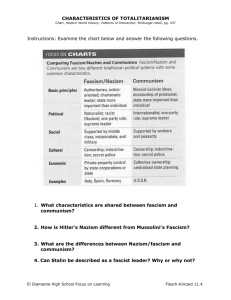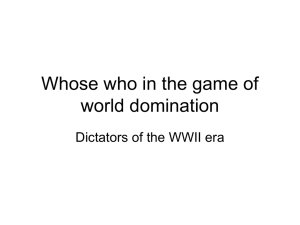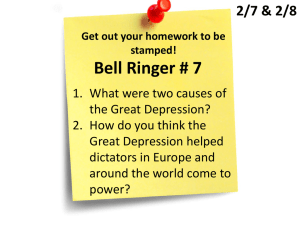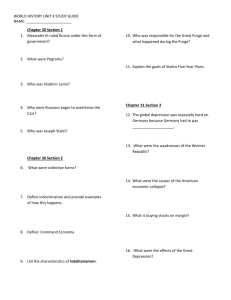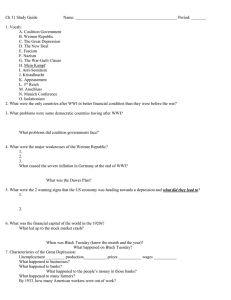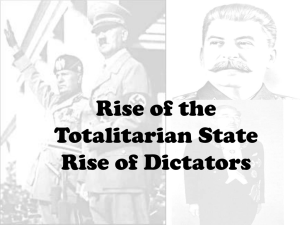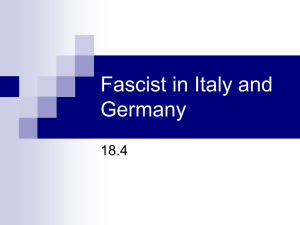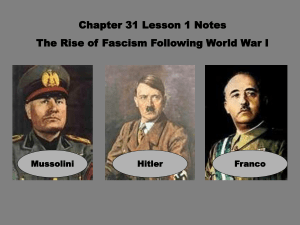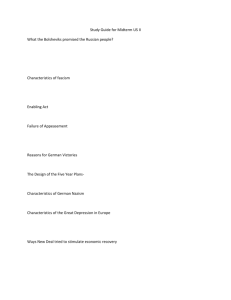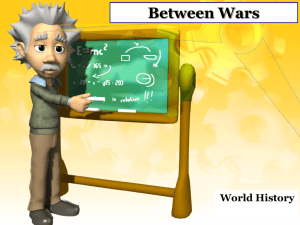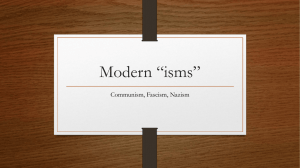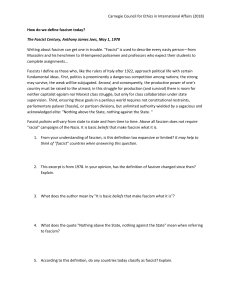Activity 3. What is Fascism? Instructions: Questions
advertisement
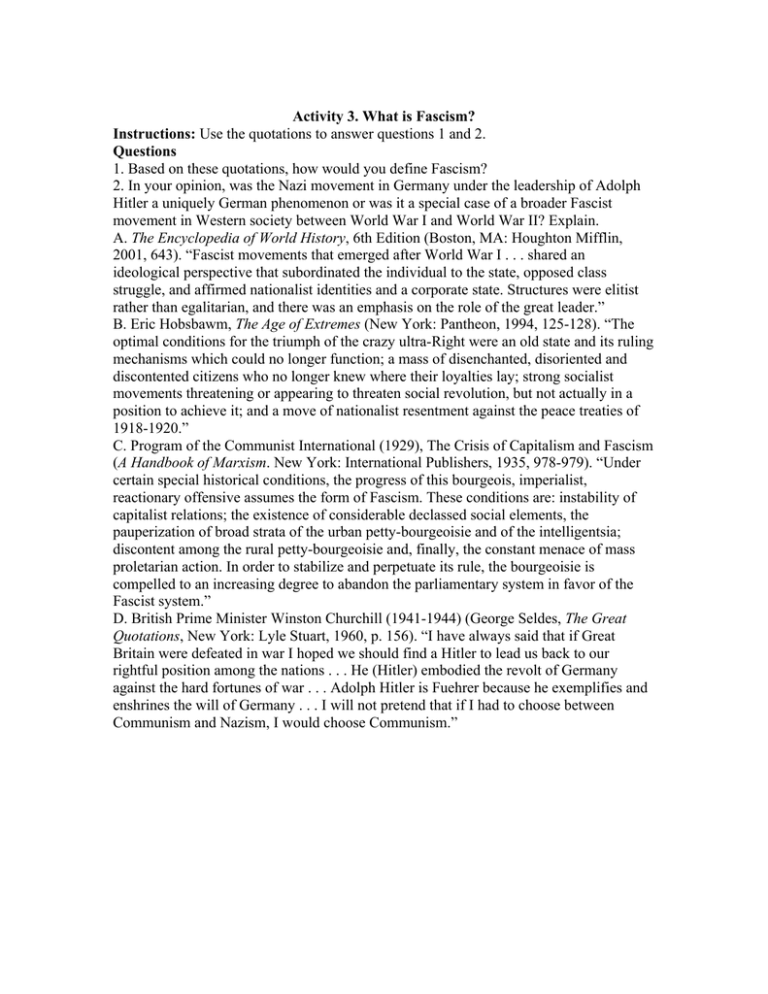
Activity 3. What is Fascism? Instructions: Use the quotations to answer questions 1 and 2. Questions 1. Based on these quotations, how would you define Fascism? 2. In your opinion, was the Nazi movement in Germany under the leadership of Adolph Hitler a uniquely German phenomenon or was it a special case of a broader Fascist movement in Western society between World War I and World War II? Explain. A. The Encyclopedia of World History, 6th Edition (Boston, MA: Houghton Mifflin, 2001, 643). “Fascist movements that emerged after World War I . . . shared an ideological perspective that subordinated the individual to the state, opposed class struggle, and affirmed nationalist identities and a corporate state. Structures were elitist rather than egalitarian, and there was an emphasis on the role of the great leader.” B. Eric Hobsbawm, The Age of Extremes (New York: Pantheon, 1994, 125-128). “The optimal conditions for the triumph of the crazy ultra-Right were an old state and its ruling mechanisms which could no longer function; a mass of disenchanted, disoriented and discontented citizens who no longer knew where their loyalties lay; strong socialist movements threatening or appearing to threaten social revolution, but not actually in a position to achieve it; and a move of nationalist resentment against the peace treaties of 1918-1920.” C. Program of the Communist International (1929), The Crisis of Capitalism and Fascism (A Handbook of Marxism. New York: International Publishers, 1935, 978-979). “Under certain special historical conditions, the progress of this bourgeois, imperialist, reactionary offensive assumes the form of Fascism. These conditions are: instability of capitalist relations; the existence of considerable declassed social elements, the pauperization of broad strata of the urban petty-bourgeoisie and of the intelligentsia; discontent among the rural petty-bourgeoisie and, finally, the constant menace of mass proletarian action. In order to stabilize and perpetuate its rule, the bourgeoisie is compelled to an increasing degree to abandon the parliamentary system in favor of the Fascist system.” D. British Prime Minister Winston Churchill (1941-1944) (George Seldes, The Great Quotations, New York: Lyle Stuart, 1960, p. 156). “I have always said that if Great Britain were defeated in war I hoped we should find a Hitler to lead us back to our rightful position among the nations . . . He (Hitler) embodied the revolt of Germany against the hard fortunes of war . . . Adolph Hitler is Fuehrer because he exemplifies and enshrines the will of Germany . . . I will not pretend that if I had to choose between Communism and Nazism, I would choose Communism.”
